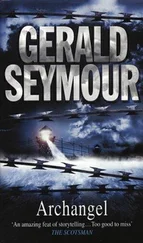“Because I wanted those lazy assholes at Headquarters to see Havlicek. To see him like that, frozen and with a piece of his head blown off. Leave their fancy dinners and their Scotch whisky and make them see what happens to us out there.”
“Did they?”
“What do you think? Plus they asked a lot of questions about how he died. If two of the men stationed at the outpost hadn’t supported my statement about the shooting being an accident, they would have ruled it suicide for sure. I would have done better to have him buried there. They’re all against me, now. Your surgeon, too, I think. Unless you do something to change that.”
He turned and she did too, facing him as he faced her, already thinking about ways she might try to convince Dr. Hirschberg to change his mind. The distant pressure she felt next turned out to be Boyd’s hands resting on what, through the layers of her thick coat, approximated her waist. The pressure increased; he was tugging her. “We could go someplace,” he said. “Do you have a room here?”
She stepped back, beyond his reach. The clouds surged and wavered in ominous patterns and on the river the ice shifted and groaned.
“I’m sorry,” he said, his arms still sticking out in the air. “You don’t want — well, of course you don’t want me. Who would want me?”
“It’s not that,” she said. “Only …” Why didn’t he understand how impossible her situation was? It didn’t matter, here, what she felt; she was so overwhelmed, surrounded by so many hurt and miserable men, that she couldn’t let any one of them get too close.
“Right,” he said, pulling sharply away from her. “Only only only only . I thought you — never mind. Why don’t you get the doctor to fix me? What would it cost you?”
“It’s not about me, about costing me …” He knew nothing about the work she and Dr. Hirschberg did together. As indeed the doctor knew nothing about her beyond her work. He might do what he asked, or he might not. “But I’ll try again, if that’s all you want from me.”
“I’d take more,” he said.
“So I see,” she said, suddenly furious. “Whatever you can get, apparently. I need to go in.”
“Now you’re angry. I just wanted—”
“Just just just ,” she said. He might accuse her of not seeing him but he was the one who didn’t see; he had no sense at all of who she was or what she did, what she felt like or what she endured; for him she was simply an instrument.

AFTER A COUPLE of days she calmed down, convincing herself that Boyd’s behavior in the courtyard, at first so upsetting, was a version of what other soldiers experienced in her darkened X-ray room. Something came over them that they couldn’t help; she pretended they didn’t mean it and so did they. He was no different than the rest of them and what happened to him was no more or less her problem. Of the two paths lying before him, she could influence neither. Either his leg healed and he resigned himself to being sent back to the front — indeed he might already be gone — or the wound became frankly infected and he reported to his medical officer, who’d send him in to the hospital, where she could examine him legitimately. She’d treat him like any other soldier, then, neither better nor worse. Dwell too long on one, she’d learned in France, and many suffer. The lines etched between her nose and her mouth, the weight she’d lost, the nights she spent reading Tolstoy instead of sleeping came from having that lesson forced on her again and again, and from seeing certain soldiers realize that they weren’t the only ones she tried to care for. In pain, in the darkened X-ray room, they called for their mothers and girlfriends, then confused her with them, then felt betrayed when she turned to the next in line.
A small rush of patients came later that week, brought in by a train; then four soldiers were hurt in a bar brawl. Busy, usefully busy, she pushed Boyd and his problems aside and didn’t immediately think of him when, at the end of March, she first heard about what had happened at the barracks. Another threatened mutiny, one in a string that by this point hardly claimed her attention. In October French troops had put down their arms and refused to fight upon hearing about the pending Armistice; in December a contingent of Russians trained by the British had deserted in the midst of a major battle, bringing maps and plans to the Bolsheviks; in February a battalion of British soldiers had refused to march to the front lines, changing their minds only when the two sergeants leading their revolt were arrested. Most recently, a company of French soldiers who’d refused to board a train heading toward one of the fronts had been confined to their barracks and then shipped back to France. This one involved Americans, though, and the rumors contradicted each other.
It was one platoon, or several platoons; they’d quietly declined to load their sleds until someone explained to them where they were being sent and why, or they’d shouted and stormed away or even, in one version, laid hands on their guns. All the versions agreed that a unit of some size had balked when ordered to leave the city. And everyone heard that the officer in charge had been sufficiently upset to telegraph a report to Washington, and that the news had apparently leaked to some newspapers. On the Friday after whatever had happened happened, Eudora read a stilted, somewhat cryptic account in the English-language weekly paper printed at the convalescent hospital:
On Monday morning, a company was told that they were being sent to a front south of the city and were ordered out of barracks for the purpose of packing sleds for the trip to the railroad station. The men remained in barracks, and eventually the NCO in charge reported the situation to the officers.
Some of those officers entered the barracks and repeated the orders but the men continued to delay for several more hours. The colonel of the regiment then arrived, assembled the men, and read them the Article of War that pronounces death as the penalty for mutiny, following which he asked if they had any questions.
Although there were no questions regarding this specific Article, one soldier did ask the colonel respectfully: “Sir — what are we here for, and what are the intentions of the U.S. Government in North Russia?” The colonel reportedly answered that he could not answer this question definitively — but that whatever the purposes of the Expedition, it was in danger of being driven to extinction by the Bolsheviks, and that all must now join in successful resistance. Silence followed.
The colonel then asked any man who did not agree with his statement, and who would refuse to fight, to step forward three paces from the ranks and explain his position. No one accepted his invitation and the meeting was dismissed with an order to load their packs on the sleds and proceed to the railroad station.
A small group of men, left behind to organize the release from the Supply Company of special rations and medical supplies that unaccountably failed to reach this front earlier, will join the rest of the company next week.
Only then did she begin to wonder about Boyd. Had his company left Archangel right after she’d last seen him, or was it the one that had balked? The following day her question was partly answered when he left a note with the guard at the hospital. I’m supposed to leave for the front tomorrow , he wrote. I’d like to see you before then. Please meet me at 8 tonight, at the toboggan run .
Of course, she thought. Every place he went he caused trouble; he must have been involved in the incident. A confused man, a difficult man. A man there was no point in seeing, except for the fact that she had failed utterly to help him. After supper, she went to the toboggan run and found him there, pale but apparently cheerful. He thanked her for coming.
Читать дальше













